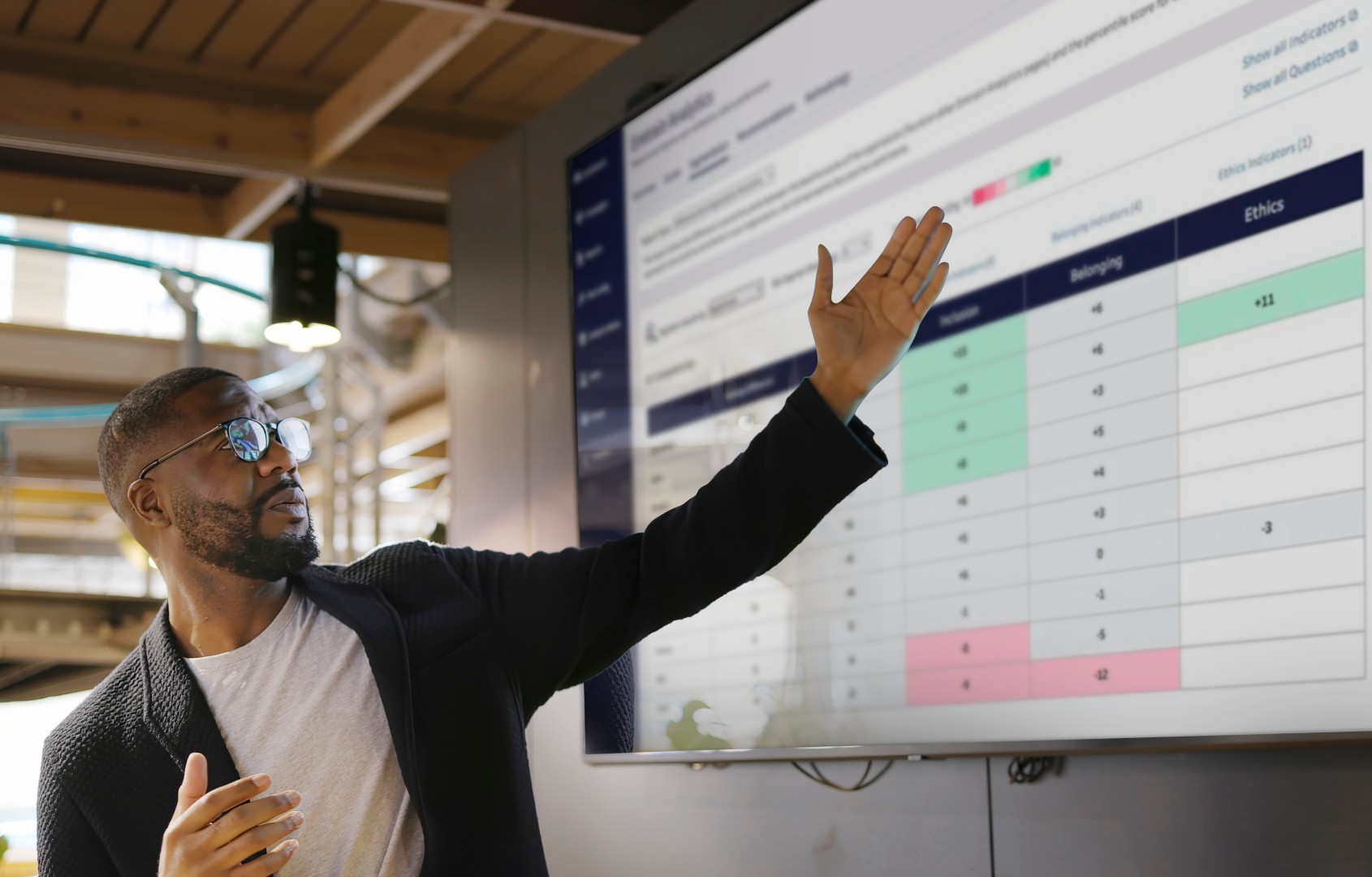Traditional surveying methods have long been the foundation for measuring employee sentiment and workplace culture. Annual or periodic surveys aim to capture broad feedback on engagement, morale, and satisfaction. However, while these methods provide some insight, they often fall short of revealing the true, nuanced experiences of employees. To truly understand what’s happening in the workplace, organizations need a more targeted, contextual approach to employee feedback. Emtrain Intelligence offers such a solution, moving beyond the limitations of traditional surveying methods.
The Limitations of Traditional Surveying Methods
One of the biggest challenges with traditional surveys is their generic nature. These surveys often feature broad questions that fail to reflect the unique dynamics within teams or departments. As a result, employees may provide vague or surface-level answers that don’t explain the root causes of issues.
Response rates can also be a concern. Employees may feel disconnected from the survey process when questions feel irrelevant or repetitive, leading to incomplete or biased data. Additionally, the infrequent nature of these surveys means feedback is often outdated by the time it is reviewed, delaying the organization’s ability to respond effectively.
A deeper challenge is the lack of psychological safety in many traditional survey environments. When employees don’t fully trust that their feedback will remain confidential—or that leadership will act on it—they may hold back honest answers. This can lead to artificially positive results that hide deeper cultural or operational issues, leaving leaders with an incomplete understanding of workplace dynamics.
Another key limitation is the lack of context. Traditional surveys rarely capture the specific situations or behaviors that influence employee experiences. Without this context, HR and leadership are left guessing about what actions to take.
How Contextual Feedback Changes the Game
Emtrain Intelligence embeds survey questions within relevant training or workplace scenarios, encouraging employees to reflect on real experiences rather than hypothetical or generalized issues. This approach increases engagement and provides richer, more actionable feedback.
By occurring within the context of a HR compliance training course and facilitated through a third-party tool, this method also enhances psychological safety. Employees are more likely to share candid feedback when the environment feels impartial, the questions are situationally relevant, and their responses are not directly tied to their immediate supervisors. This increases both the quality and quantity of feedback, giving organizations a clearer picture of workplace realities.
For example, instead of asking broad questions about workplace fairness, employees might be asked about their reactions to a specific manager’s behavior or team interaction immediately after a training session. This specificity reveals the underlying causes of dissatisfaction or concern, making it easier to address.
The Business Impact of Moving Beyond Traditional Surveys
Companies that adopt contextual feedback methods benefit from higher participation rates, more honest responses, and timely insights. This enables HR and leadership to identify and resolve workplace issues before they escalate, improving employee morale and reducing turnover risks.
Traditional surveying methods can leave organizations blind to subtle but important workplace dynamics that, if ignored, may lead to costly legal risks or loss of productivity. Contextual feedback provided by tools like Emtrain Intelligence fills these gaps with precise data, guiding better decision-making.
Conclusion:
While traditional surveying methods remain a useful baseline, they are no longer sufficient for organizations committed to building inclusive, engaged, and compliant workplaces. Emtrain Intelligence’s contextual analytics provide the detailed, timely insights needed to truly understand employee experiences and drive meaningful change.








